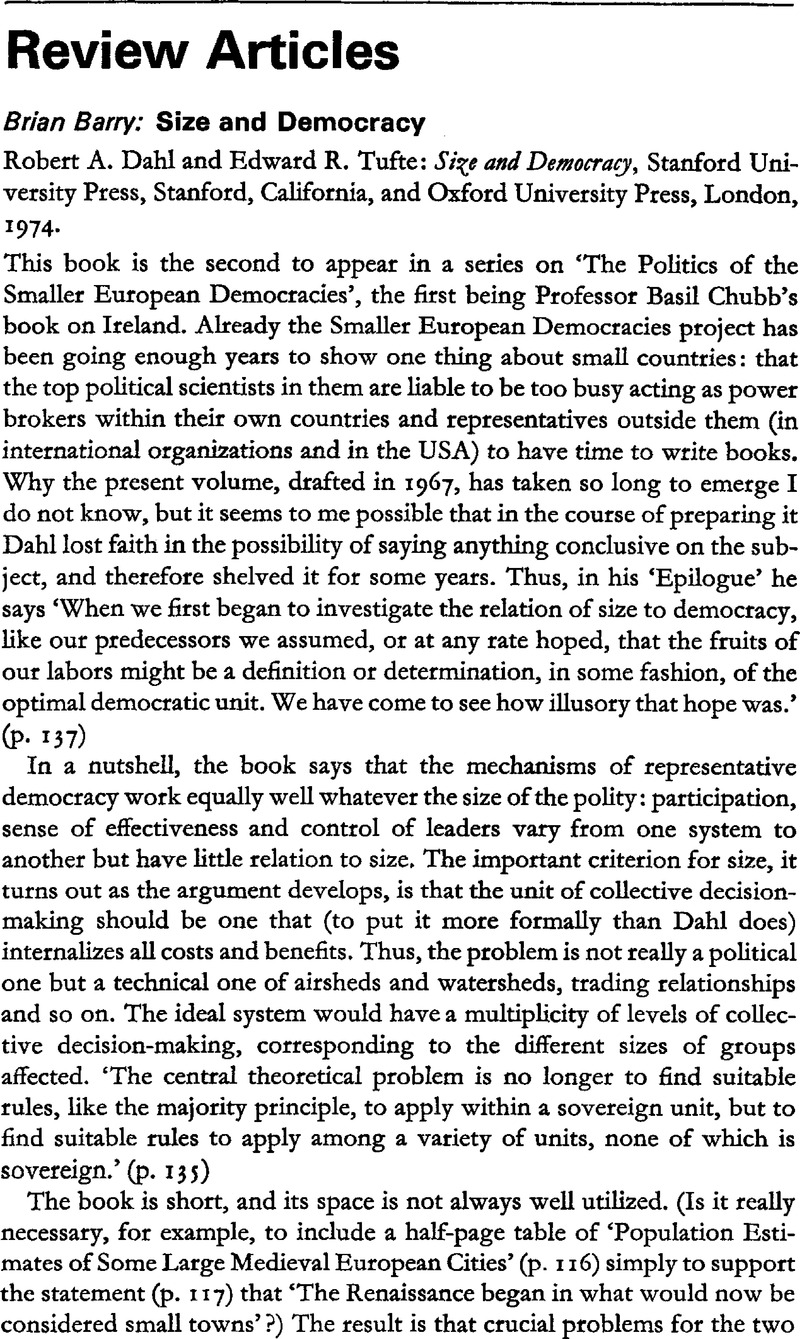Article contents
Abstract

- Type
- Review Articles
- Information
- Copyright
- Copyright © Government and Opposition Ltd 1974
References
1 There is an interesting footnote on p. 27 which runs as follows: ‘In an attempt to reduce this confusion [between direct and representative democracy], one of the authors has in several books reintroduced the old term polyarchy as a substitute for representative democracy. The Oxford English Dictionary gives its meaning as “the government of a state or city by many; contrasted with monarchy”. The earliest cited usage in English is 1609. However, because its usage here would require a more extended definition than is strictly necessary to the argument later on, and out of deference to readers who resist what appears, wrongly, to be a neologism, we have not used the word in this book.’ I think that Dahl has failed to identify correctly the source of reluctance to accept ‘polyarchy’ into the working vocabulary. The point about neologism is surely a red herring, or rather two red herrings. First, the revival of a word that never caught on is, functionally, the same as creating a neologism, since it requires people to learn to operate with a new word. As devotees of Call My Bluff’ will be aware, the existence of a word in the OED is not worth much. For example, in the region of ‘polyarchy’ is ‘polydoggery’, meaning ‘the keeping of a number of dogs’, with a citation from 1875 to the effect that ‘Polydoggery is a thing against which all proper feeling revolts’ (sub ‘poly- I’). Second, one could in any case hardly accuse American political science of undue resistance to neologisms in the last twenty years. The objection to ‘polyarchy’ is, surely, that it adds difficulties to those presented by ‘democracy’ rather than resolves them. ‘Democracy’ means ‘power of the people’ and is thus suitable as a word for making a general appraisal of the distribution of power in a political system (whatever the precise form taken by its institutions). ‘Polyarchy’ means ‘many people rule’. If taken literally it would naturally be taken to refer to a system in which a large number of people hold some political office, including perhaps only a legislative function. It is thus, as Dahl remarks, distinct from a classical monarchy. A representative democracy is hardly one in which ‘many rule’ in this sense. On the other hand, if we extend the notion of’ rule’ so that it includes control over those who do rule, it is simply a misleading and confusing way of making a claim more clearly carried by ‘democracy’.
2 Dahl, R. A. and Lindblom, C. E., Politics, Economics and Welfare, Harper, New York, 1953 Google Scholar.
- 2
- Cited by




